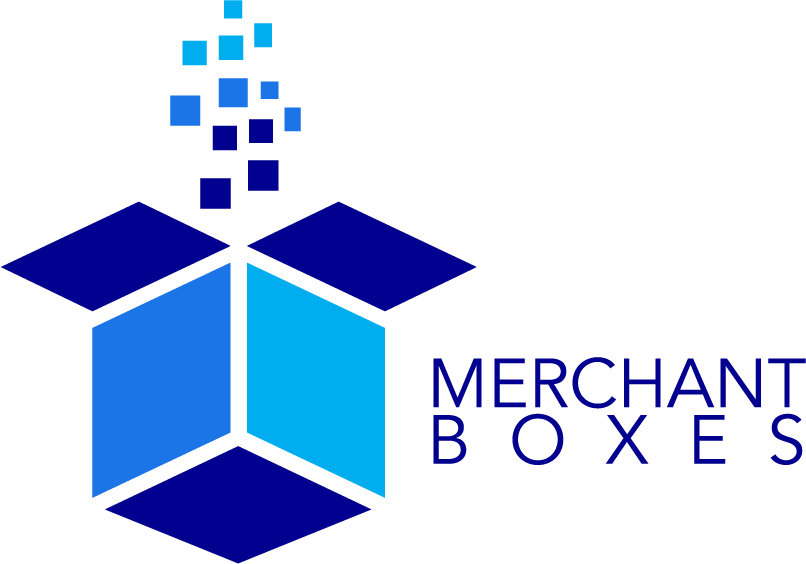The Impact of an Optimized Supply Chain on Users and Purchasers of Packaging
This blog post is sponsored by OPtiM Consulting Group.
The packaging industry is a cornerstone of modern commerce, playing a vital role in sectors ranging from retail and e-commerce to food, pharmaceuticals, and more. Packaging protects products, communicates brand identity, and enhances customer experience. But behind every well-designed package lies a complex supply chain that ensures materials are sourced, produced, and delivered efficiently.
An optimized supply chain is essential in packaging, not only for manufacturers but also for users and purchasers of packaging solutions. Businesses that rely on packaging—like local restaurants, retail stores, and subscription services—depend on a seamless supply chain to maintain quality, manage costs, and meet customer expectations. In this post, we’ll explore how supply chain efficiency impacts packaging users and purchasers and why optimization is crucial for long-term success.
How an Optimized Supply Chain Benefits Users and Purchasers
Cost Savings
An efficient supply chain reduces production and transportation costs by minimizing waste, optimizing procurement, and streamlining operations. By cutting down on excess inventory, avoiding rush orders, and reducing storage costs, businesses can maintain lower operational expenses. These savings are passed down to users and purchasers, letting businesses maintain competitive pricing without sacrificing quality. An optimized supply chain also allows for bulk purchasing and long-term contracts with suppliers, further driving cost efficiency.
Faster Delivery & Availability
When supply chains are optimized, lead times shrink, and inventory management improves. Advanced forecasting and just-in-time (JIT) practices ensure that businesses receive their packaging materials exactly when they need them, reducing the risk of out-of-stock events and eliminating the need for excessive warehousing. This results in faster order fulfillment, keeping shelves stocked and customers satisfied. A responsive supply chain allows businesses to quickly adapt to market demands and seasonal trends without facing long wait times for essential packaging.
Consistent Quality & Reliability
A well-structured supply chain ensures consistent sourcing of high-quality materials. Standardized processes and rigorous supplier vetting maintain uniform quality, ensuring that every packaging order meets brand expectations. For users, this translates into reliable packaging performance—whether it’s maintaining product freshness, protecting fragile items, or showcasing premium branding. Consistent quality also decreases the likelihood of defects, minimizing returns and improving the customer experience.
Sustainability Benefits
Supply chain efficiency often goes hand-in-hand with eco-friendly practices. Streamlined logistics reduce carbon footprints by optimizing transportation routes and minimizing fuel usage. Efficient procurement makes it easier to source sustainable materials like recycled paper, biodegradable plastics, and plant-based packaging solutions. Businesses prioritizing an optimized supply chain can better meet environmental goals and cater to eco-conscious consumers while reducing costs associated with waste management and regulatory compliance.
Key Challenges Users and Purchasers Face Without an Optimized Supply Chain
Supply Shortages & Delays
Disruptions in an inefficient supply chain can lead to unpredictable lead times and frequent stockouts, putting businesses at risk of delayed product launches and dissatisfied customers. A lack of visibility into supplier operations often results in unexpected shortages, forcing businesses to scramble for alternative sources at higher costs.
Higher Costs
Poor supply chain management often results in inflated costs due to emergency sourcing, excessive shipping fees, and wasted materials. Inefficiencies lead to higher overhead, driving up the cost of packaging and reducing profit margins. Without an optimized system, businesses may also face increased labor costs from inefficient workflows and manual inventory management.
Quality Variability
Inconsistent sourcing can lead to packaging that varies in durability, appearance, and performance. When materials differ from batch to batch, it becomes challenging to maintain brand standards, leading to an inconsistent customer experience. This inconsistency can damage a brand’s reputation and lead to increased product returns, further raising costs for businesses.
Sustainability Pressures
Businesses without an optimized supply chain struggle to meet growing environmental regulations and consumer expectations for eco-friendly packaging. Inefficient logistics and non-sustainable materials contribute to a larger carbon footprint. Not to mention, a lack of streamlined sourcing often makes it difficult to access innovative, sustainable packaging solutions at scale.
Strategies for Enhancing Supply Chain Efficiency to Benefit Users
Leveraging AI and Automation
Improving supply chain efficiency requires a strategic approach that combines technology, supplier collaboration, and sustainability initiatives. One of the most effective ways to achieve this is by implementing AI and automation. Predictive demand planning powered by AI lets businesses forecast their packaging needs with remarkable accuracy, reducing the risks of overstocking or running out of essential materials. Automation streamlines production schedules, minimizes human error and increases overall efficiency by handling repetitive tasks and managing inventory in real-time.
Strengthening Supplier Networks
Strengthening supplier networks is another critical strategy. By diversifying supplier relationships and building strong partnerships, businesses create a more resilient supply chain. This reduces dependency on a single source and ensures material availability even during market disruptions or geopolitical issues. Establishing long-term collaborations with reliable suppliers also improves quality consistency and cost management. Collaborating closely with suppliers also fosters innovation, allowing businesses to stay ahead of packaging trends and access the latest sustainable materials.
Adopting Sustainable Practices
Adopting sustainable practices not only aligns with environmental goals but also improves supply chain efficiency. Sourcing eco-friendly materials and minimizing production and logistics waste leads to long-term cost savings and reduced carbon footprints. Working with suppliers who prioritize sustainability ensures that businesses meet regulatory standards and consumer expectations without compromising efficiency. Investing in green logistics—like electric delivery fleets and carbon offset programs—further improves environmental impact.
Optimizing Logistics and Distribution
Improving logistics and distribution processes also plays a vital role. Optimizing transportation routes, investing in advanced warehouse management systems, and using data analytics to monitor delivery performance result in faster, more efficient shipping. These improvements reduce lead times, lower shipping costs, and keep packaging users well-stocked and ready to meet customer demand. Real-time tracking and automated inventory replenishment systems help prevent supply gaps and maintain consistent stock levels.
Future Trends in Supply Chain Optimization for Packaging Users
Smart Packaging and IoT
The future of supply chain optimization promises even greater efficiency and innovation through cutting-edge technologies and evolving practices. Smart packaging and IoT (Internet of Things) technology are revolutionizing inventory management by providing real-time tracking and condition monitoring. With IoT-enabled sensors, businesses can track the location, temperature, and humidity of their packaging materials, ensuring they arrive in perfect condition. This level of visibility minimizes damage, reduces waste, and ensures product integrity.
Blockchain for Transparency
Blockchain technology is emerging as a game-changer for supply chain transparency and traceability. By creating secure, tamper-proof records of every transaction and movement within the supply chain, blockchain ensures authenticity and ethical sourcing. This builds trust with consumers and partners while simplifying compliance with regulatory standards. Brands can use blockchain to verify sustainable practices and provide customers with proof of responsible sourcing.
Localized and On-Demand Manufacturing
Localized and on-demand manufacturing is gaining traction as businesses seek faster response times and reduced transportation costs. Establishing production facilities closer to end-users not only shortens lead times but also lowers shipping expenses and environmental impact. This approach increases supply chain agility and enhances customer satisfaction. On-demand production models reduce overproduction, minimizing waste and enabling customization at scale.
Emphasis on Circular Economy
A growing emphasis on circular economy practices is driving the adoption of reusable and recyclable packaging solutions. Businesses are investing in packaging designs that prioritize longevity, recyclability, and minimal waste. As circular economy principles become more widespread, supply chains will become more sustainable, cost-effective, and resilient. Closed-loop systems that reclaim and reuse packaging materials will play a crucial role in reducing environmental impact and increasing supply chain efficiency.
Conclusion
An optimized supply chain is a game-changer for users and purchasers of packaging, driving cost savings, faster delivery, consistent quality, and sustainability. As supply chain innovation continues, businesses that prioritize efficiency will be better positioned to meet customer demands and achieve long-term success. Now is the time to invest in supply chain optimization and reap the benefits of a more resilient, responsive, and responsible packaging ecosystem.
About OPtiM Consulting Group
OPtiM Consulting Group is a full-service supply chain consulting firm dedicated to delivering innovative solutions to complex supply chain challenges. They emphasize building agile and resilient supply chains through a client-centric approach that fosters trusting and long-lasting partnerships. Their services encompass logistics network engineering, cost optimization, distribution scenario modeling, warehouse industrial engineering, supplier relationship management, strategic sourcing, inventory optimization, spend analytics, and supply chain strategic advisory. Headquartered in Richmond Hill, GA OPtiM Consulting Group is available to assist with any of your supply chain opportunities or challenges. Visit us on the web at www.optimconsultinggroup.com and let’s connect.







